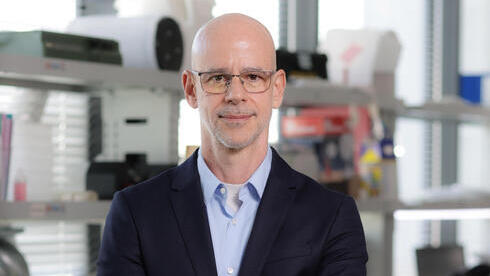
For Israeli economy, no substitute for high-tech dominance
The high-tech sector's contribution rate to the country's GDP of 20% is significantly greater than that of the USA at 9% and Russia's dependence on gas and oil at 16%, according to a report by the Innovation Authority. However, the diversity of the working population in the high-tech sector remains low, with 65% being non-ultra-Orthodox Jewish men.
The annual report of the Israel Innovation Authority reveals the depth of the dependence of Israel's economy on local high-tech. The report shows that in no other country in the world is there a field on which the state depends so much for its existence.
Today, Israeli high-tech makes up 20% of the total GDP. By comparison, in the United States, the weight of high-tech is only 9% of the economy, and trade in Russia's oil and gas resources constitutes 16% of the Russian GDP. In a conversation with Calcalist, Dror Bin, CEO of the Innovation Authority, says: "The high-tech field is more important to Israel than oil and gas are to Russia - and Russia went to war over it. On the other hand, the governments' investments in Israel in the last 20 years have been decreasing, and are lower than what is accepted in the OECD. Israel is special in that it invests less every year in its main economic resource - high-tech - which is so important to the country's economy, and has been a 'shock absorber' for quite a few years now."
The report shows that the number of people employed in Israeli high-tech was 396,000 in 2023, an increase of 2.6% compared to 2022. There are about 9,200 high-tech companies in Israel, of which 600 are new companies established in 2023. During the year, about ten thousand men and women joined the industry.
However, the growth rate of the sector in 2023 was significantly lower than the annual growth rate since 2018. "The positive side is that despite all the challenges and difficulties of 2023, the decrease in investments and instability, the number of people employed in high-tech has grown. This is not a big increase, but it is still a nice achievement in a year of war and global crisis," says Bin.
"It is true that we have grown, but less than in previous years, and investments have also decreased. The growth in hiring new workers has also decreased. Everyone has significant concerns for the future of the country and the economy. The entrepreneurs feel it, and so do the investors," he added.
One of the challenges facing Israeli high-tech in times of war is preventing the departure of multinational companies from Israel. Some of these companies depend on external factors that may boycott Israel. According to the report, there are currently about 515 multinational companies in Israel, and the number has increased over the years. Today, the multinational companies employ about 90,000 workers in Israel (almost a quarter of Israeli high-tech). Most of the employment is in the software fields (40%), semiconductors (30%), and life sciences (10%).
One of the claims against the high-tech industry is the huge wage differences between the industry and the rest of the economy, and the latest report proves that this is indeed the case. The average monthly wage in high-tech in 2023 was NIS 30,217 - 2.74 times the average in the economy, after having increased by 7% this year. From 2013 until 2023, the average monthly salary in high-tech has increased by NIS 10,460, almost four times the average salary increase in other branches of the economy.
Even within high-tech, there are wage gaps, where the average wage in the software field is more than NIS 4,000 higher per month than in the field as a whole. From 2014 to 2023, the number of employees in the industry increased by approximately 150,000 people, a growth of approximately 60%, which was expressed in an annual increase of tens of thousands of employees every year from 2018. The main growth was in software companies. The main growth in high-tech employment is in R&D jobs in the industry - their number has more than doubled, from 94,000 in 2014 to over 190,000 in 2023.
Despite many attempts to change the demographic situation in the industry, 65% of the industry's employees are still non-ultra-Orthodox Jewish men. Women make up only a third of those employed in the field, and of these, only 5.4% are ultra-Orthodox, and 1.6% are Arabs.
Regarding the reserves, the report reveals that in the fourth quarter of 2023, 28,000 high-tech workers served in the reserves, 60% of them in R&D positions. In January and February, this number was reduced to less than 12,000 people, about 3% of those employed in high-tech. Following October 7, there was a decrease in the number of job vacancies in high-tech, mainly in the Tel Aviv and Central region. In the first quarter of 2024, there was a recovery in the number of vacancies, but this recovery only raised the number to its pre-war level, which was the lowest since 2019.















